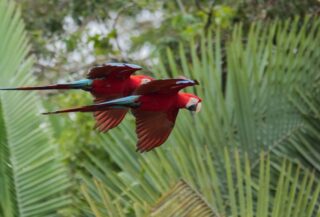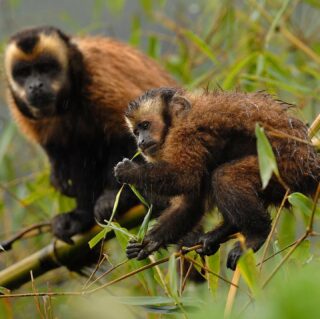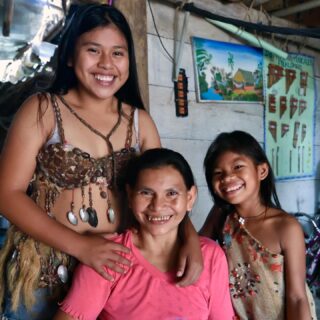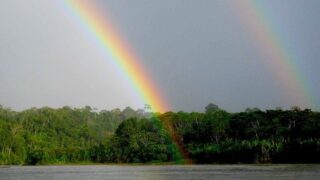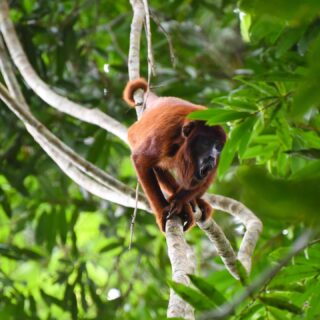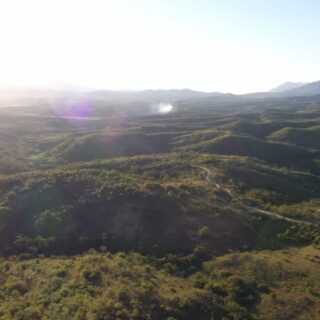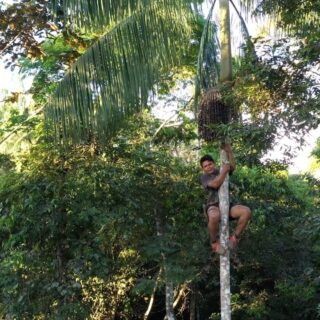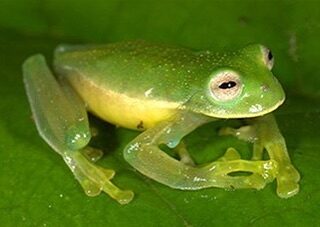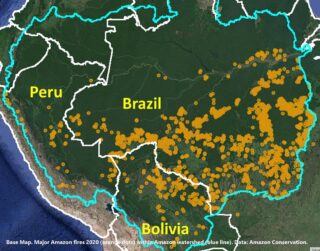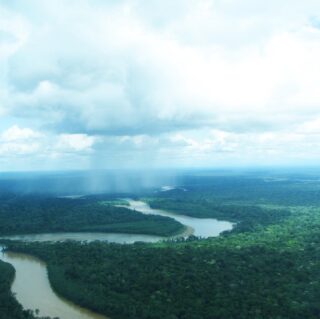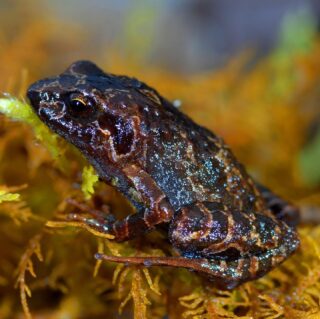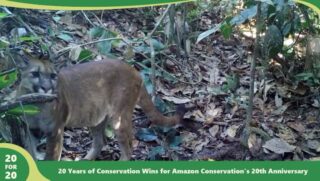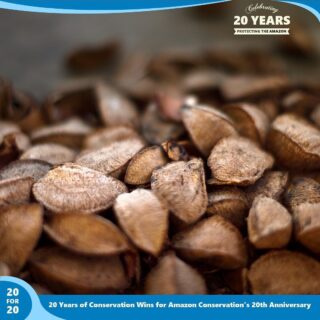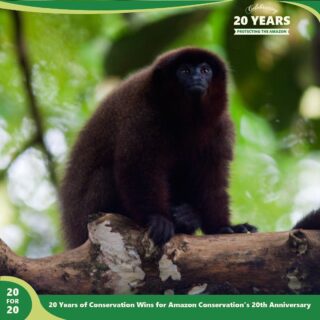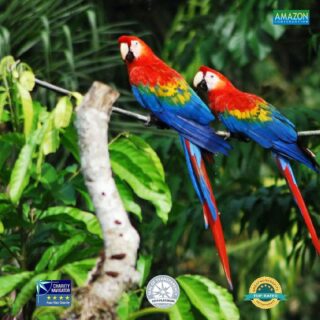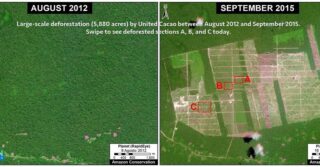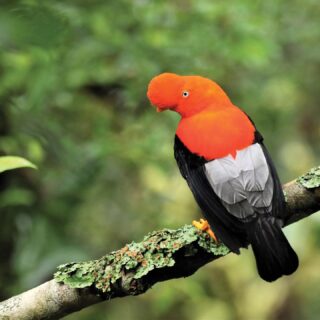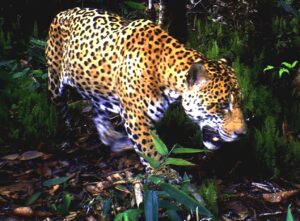
On the ground in Bolivia, we are working with communities and park guards to improve local perceptions and promote coexistence between humans and jaguars to engage local people in the protection of jaguar habitat and the larger forest ecosystem. Our education efforts work to mitigate conflicts between humans and jaguars and work with park guards on how to handle these conflicts in local communities. They also help to further sensitize children to the importance of jaguars and other iconic Amazon species to value peaceful coexistence in the forest.
Resilience for the Amazon relies on healthy and dynamic ecosystems as much as climate-smart and forest-friendly economies. Key wildlife like the jaguar serves a dual role as an iconic Amazon species and an indicator species for the rainforest. They hold a central role in local cultures and Indigenous relationships with the forest, and their presence (or lack of) in a region indicates if a forest is healthy or if it needs better protection and restoration.
Since jaguars are a keystone species that helps keep ecosystems balanced, they are an important tool to better understand the state of the Amazon in Bolivia and Peru. Our extensive camera trap network in the Bolivian and Peruvian Amazon utilizes more than 700 cameras to track the presence of this iconic species, which we analyze to find where populations are dwindling so that we can investigate the causes of these changes and understand if local conservation efforts are working. Your support can help to further expand this network of camera traps and analyses across the region to protect jaguar habitats.
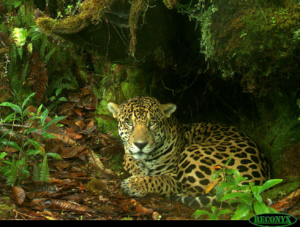 Thanks to your support, you are helping us build climate resilience in the Amazon by strengthening healthy and biodiverse wildlife populations and ensuring long-term forest health to withstand the worst impacts of climate change. Your contributions help us continue to improve our programs that protect jaguar habitat and populations, track forest and wildlife health, and host education programs with local communities to train local people in how to safely mitigate human-jaguar conflicts and sustainably manage local forests for healthy jaguar populations.
Thanks to your support, you are helping us build climate resilience in the Amazon by strengthening healthy and biodiverse wildlife populations and ensuring long-term forest health to withstand the worst impacts of climate change. Your contributions help us continue to improve our programs that protect jaguar habitat and populations, track forest and wildlife health, and host education programs with local communities to train local people in how to safely mitigate human-jaguar conflicts and sustainably manage local forests for healthy jaguar populations.
PLUS, now through the end of the year, your tax-deductible contribution for climate resilience in the Amazon WILL BE MATCHED up to $150,000. This means that YOUR CONTRIBUTION IS ESSENTIALLY DOUBLED, maximizing your impact and our resilience-building efforts on the ground!
Make your end-of-year donation today to protect the jaguar and other iconic Amazon species while also supporting a climate-resilient foundation for the greatest forest on Earth!
Protect Jaguar Habitats and Support Climate Resilience >

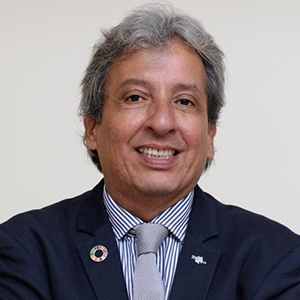 This year’s COP28 (United Nations Climate Change Conference), held in Dubai from November 30th to December 12th, brought together more than 190 governments to discuss global climate action. One of our board members,
This year’s COP28 (United Nations Climate Change Conference), held in Dubai from November 30th to December 12th, brought together more than 190 governments to discuss global climate action. One of our board members, 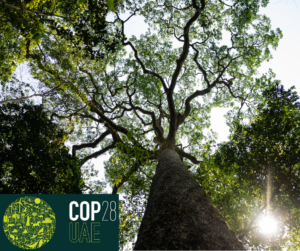
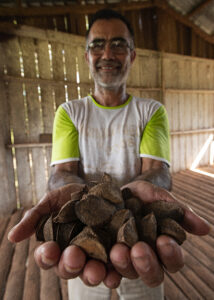
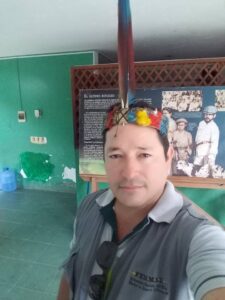
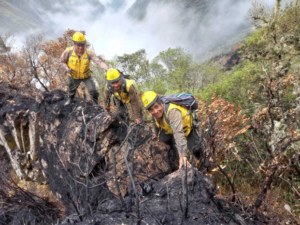 In a region with limited training, knowledge, and tools to prevent or combat fires that escape into forests, controlling fires is critical to minimize their damage to the greater forest and local communities. In response to ongoing droughts and illegal deforestation in the Beni Department in Bolivia, Abraham Pache Canchi, an Indigenous park guard is leading local fire prevention workshops to help local communities and governments be better prepared to swiftly respond to fires.
In a region with limited training, knowledge, and tools to prevent or combat fires that escape into forests, controlling fires is critical to minimize their damage to the greater forest and local communities. In response to ongoing droughts and illegal deforestation in the Beni Department in Bolivia, Abraham Pache Canchi, an Indigenous park guard is leading local fire prevention workshops to help local communities and governments be better prepared to swiftly respond to fires.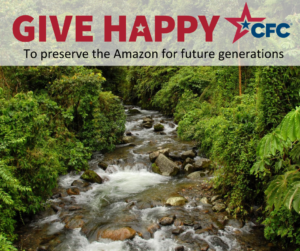 The
The 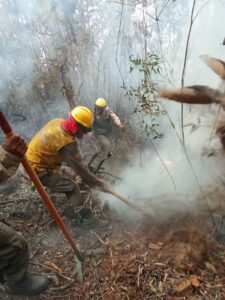
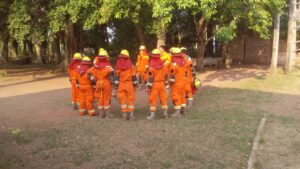 Your contributions are aiding us in encouraging local residents to opt for economic activities that mitigate the risk of fires and may even contribute to slowing their spread. Deforested areas are prone to fire, and fire can spread faster in less forested areas and areas with less diverse crops. Rather than expansive monocultures, we encourage forest-friendly alternatives to destructive economic activities such as sustainable honey, wild cacao, and high-altitude coffee. Product diversification is also important to build resilience in the region so that local income is less susceptible to damage to crops and forests are more fire resilient by being more robust and biodiverse.
Your contributions are aiding us in encouraging local residents to opt for economic activities that mitigate the risk of fires and may even contribute to slowing their spread. Deforested areas are prone to fire, and fire can spread faster in less forested areas and areas with less diverse crops. Rather than expansive monocultures, we encourage forest-friendly alternatives to destructive economic activities such as sustainable honey, wild cacao, and high-altitude coffee. Product diversification is also important to build resilience in the region so that local income is less susceptible to damage to crops and forests are more fire resilient by being more robust and biodiverse.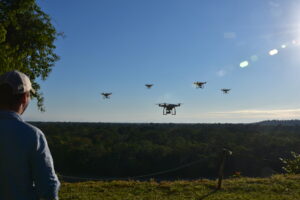
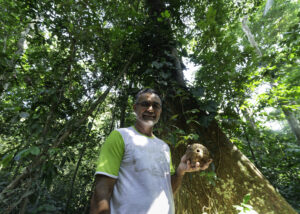 One way that you are helping meet local needs is by supporting local leader and Brazil nut harvester, Manuel Lima, from the Porvenir community in Pando, Bolivia, who has been a major force in the development of a major inter-institutional platform for producers and buyers called the
One way that you are helping meet local needs is by supporting local leader and Brazil nut harvester, Manuel Lima, from the Porvenir community in Pando, Bolivia, who has been a major force in the development of a major inter-institutional platform for producers and buyers called the 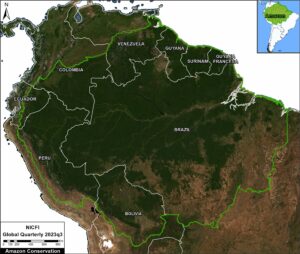 Our first MAAP report published in March 2015 looked at the escalating gold mining deforestation in the Peruvian Amazon.
Our first MAAP report published in March 2015 looked at the escalating gold mining deforestation in the Peruvian Amazon.